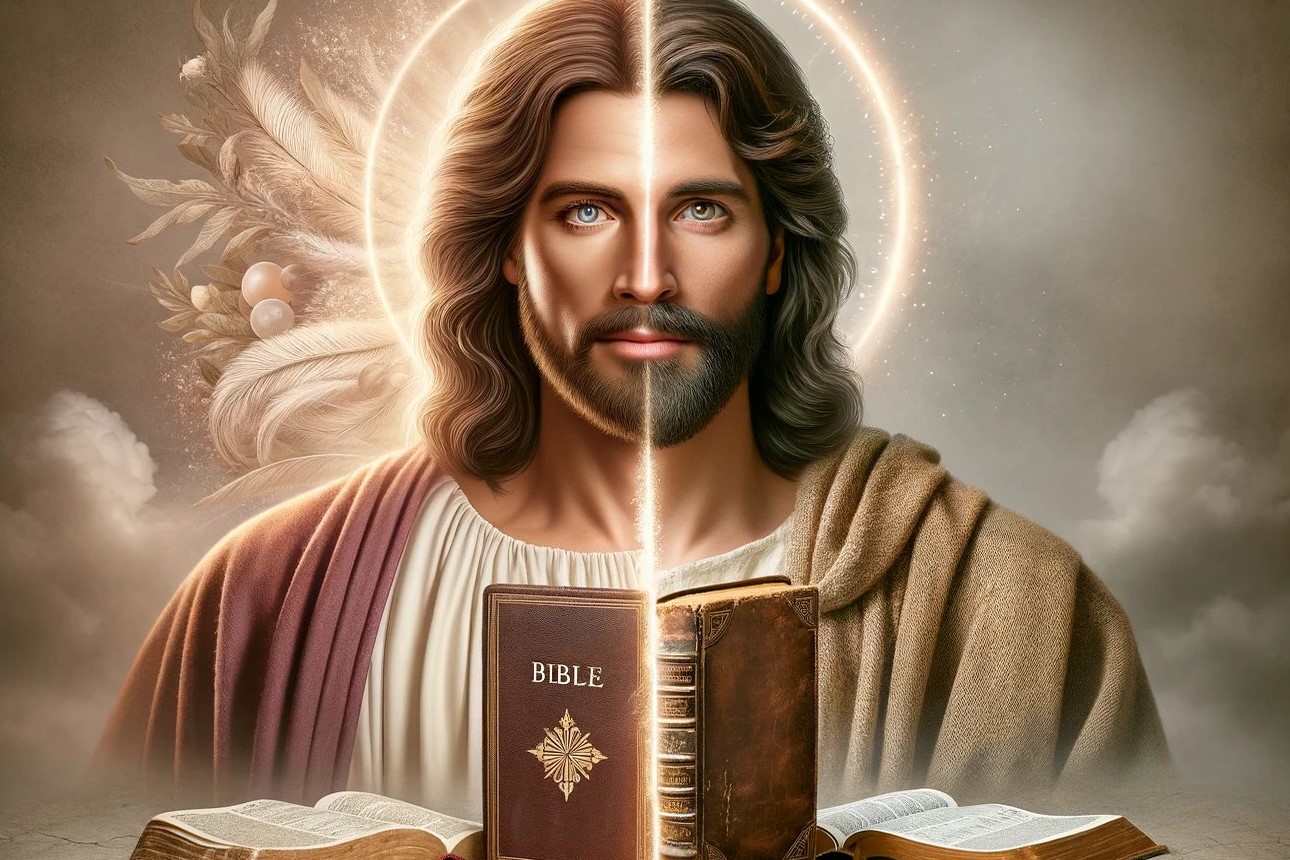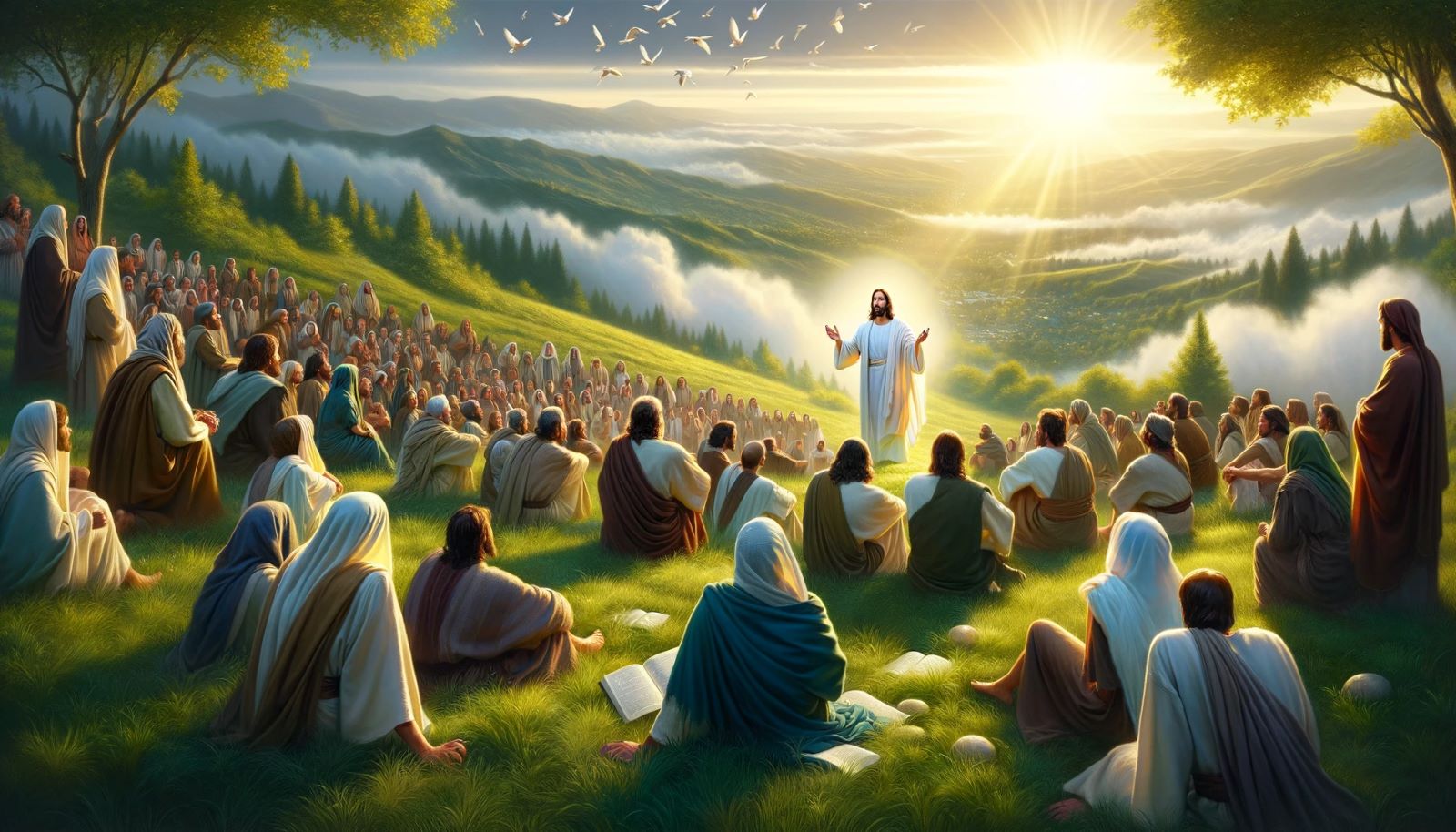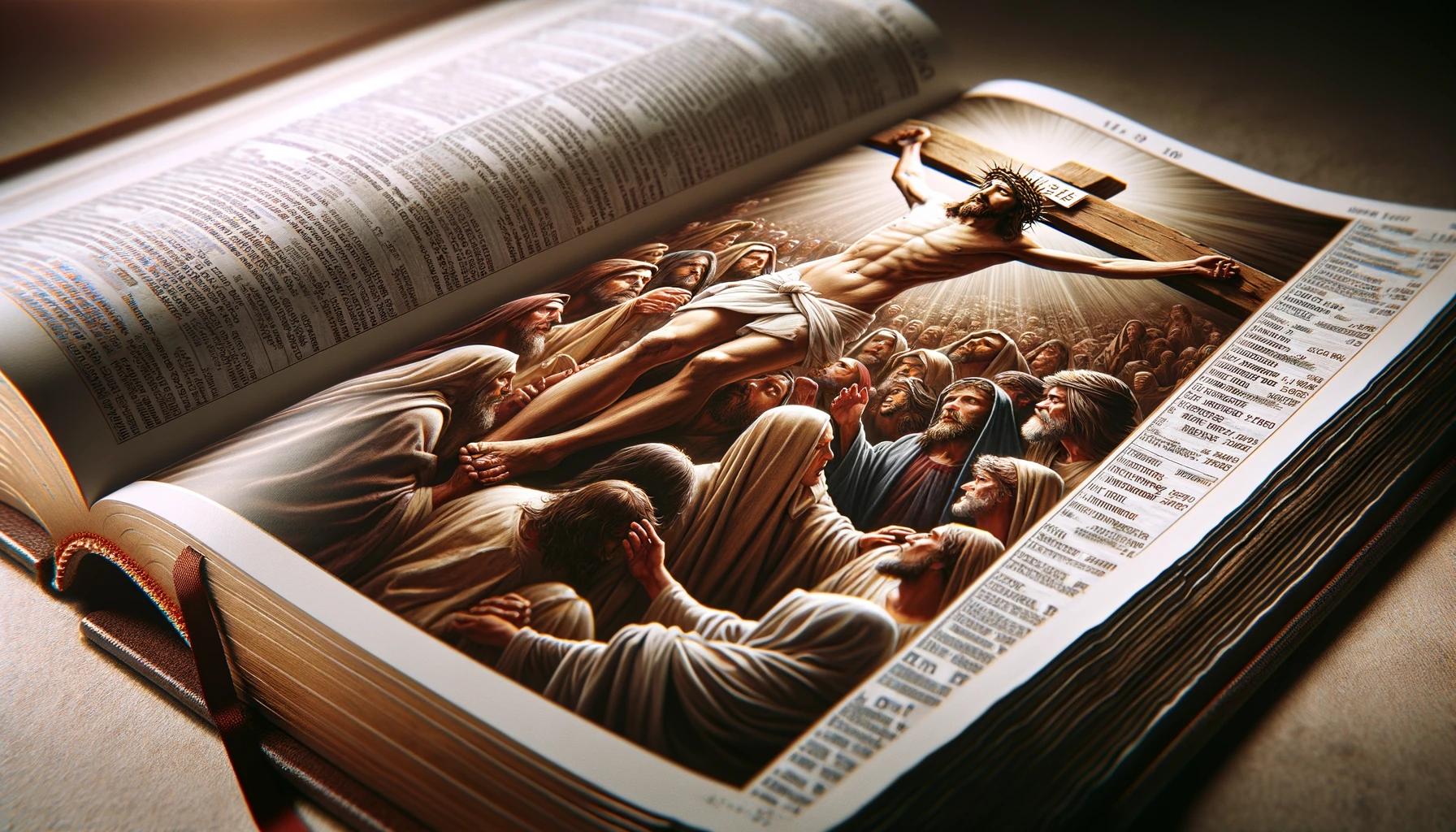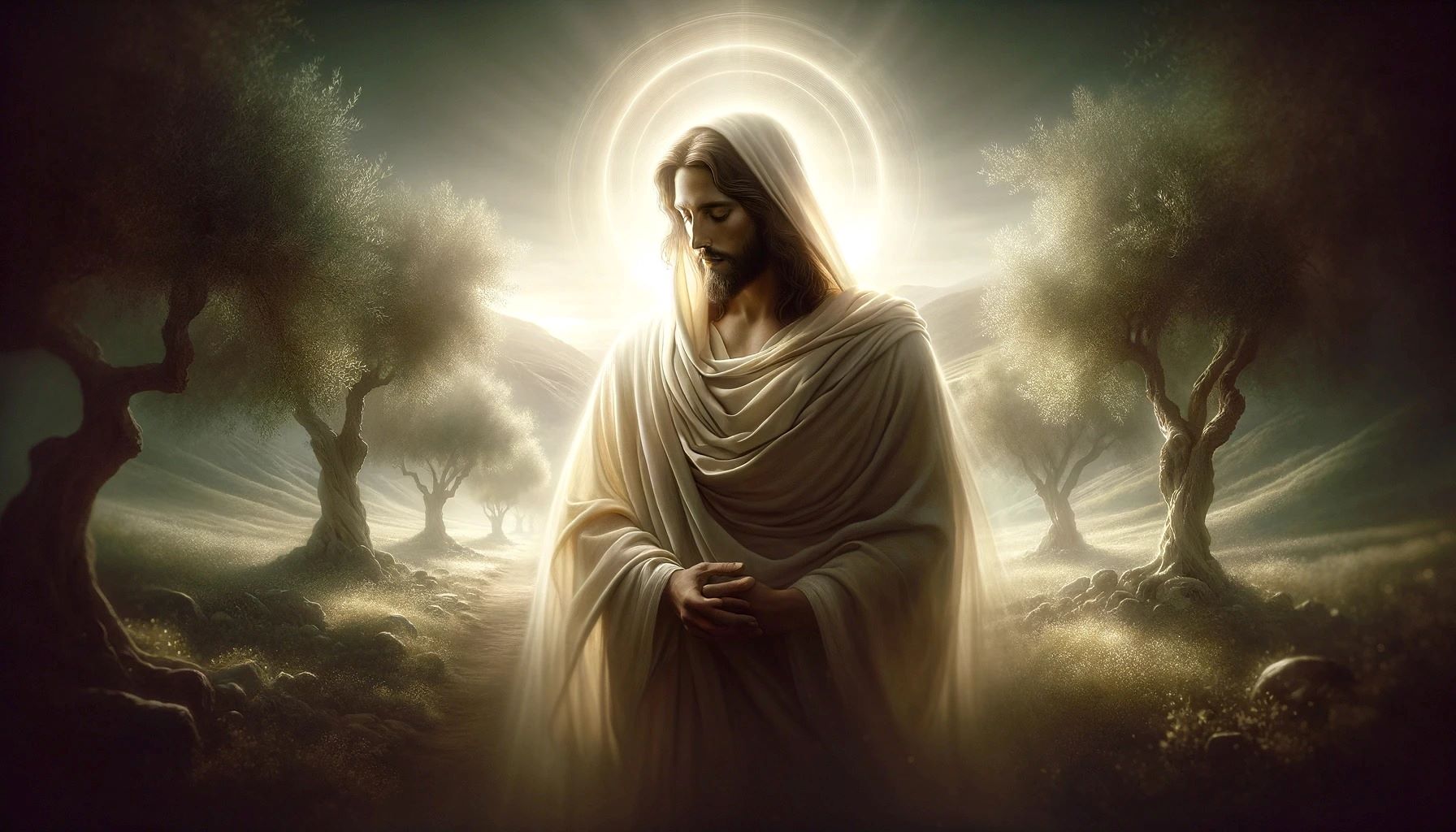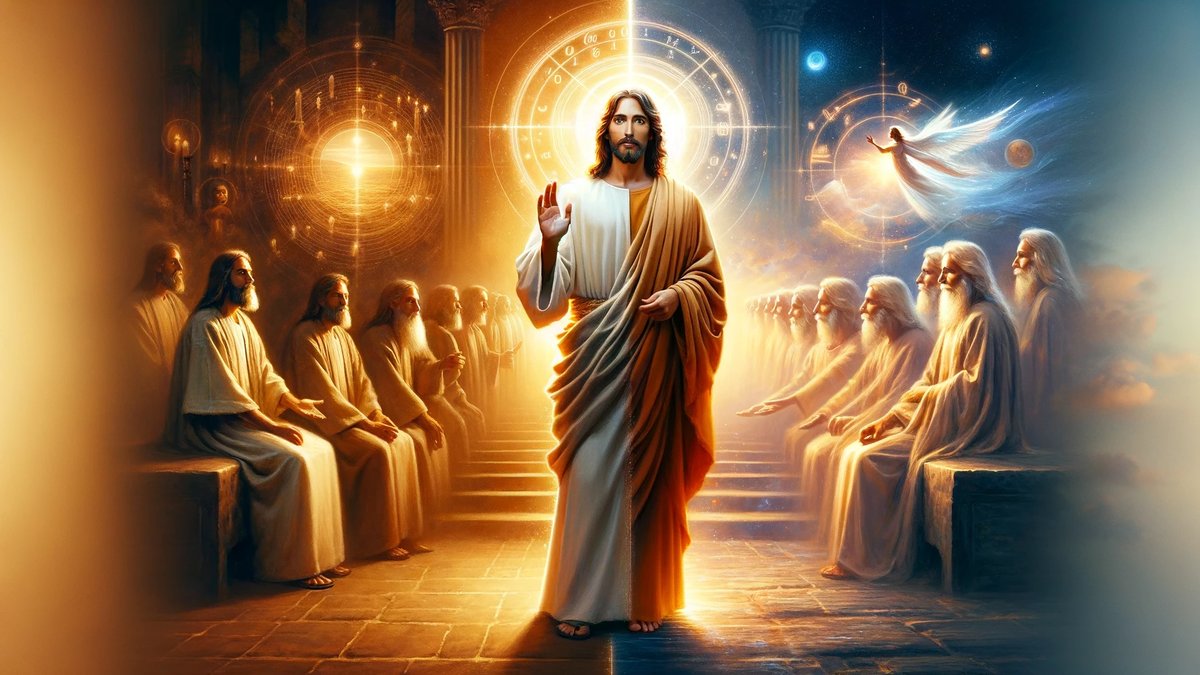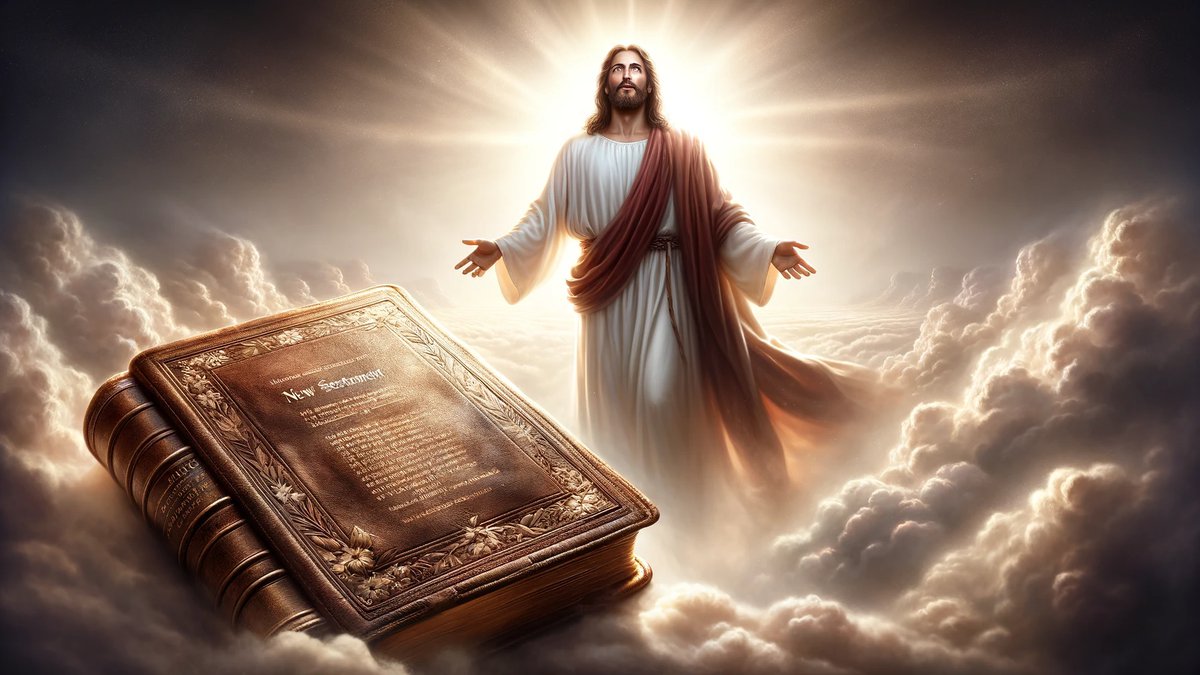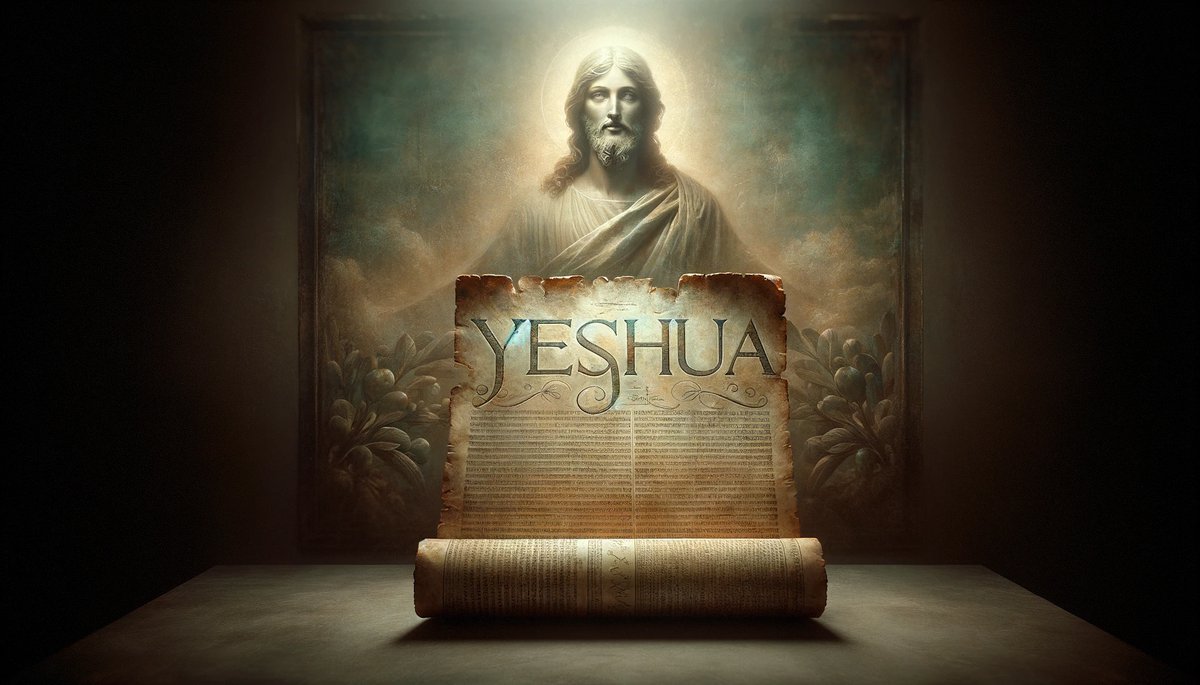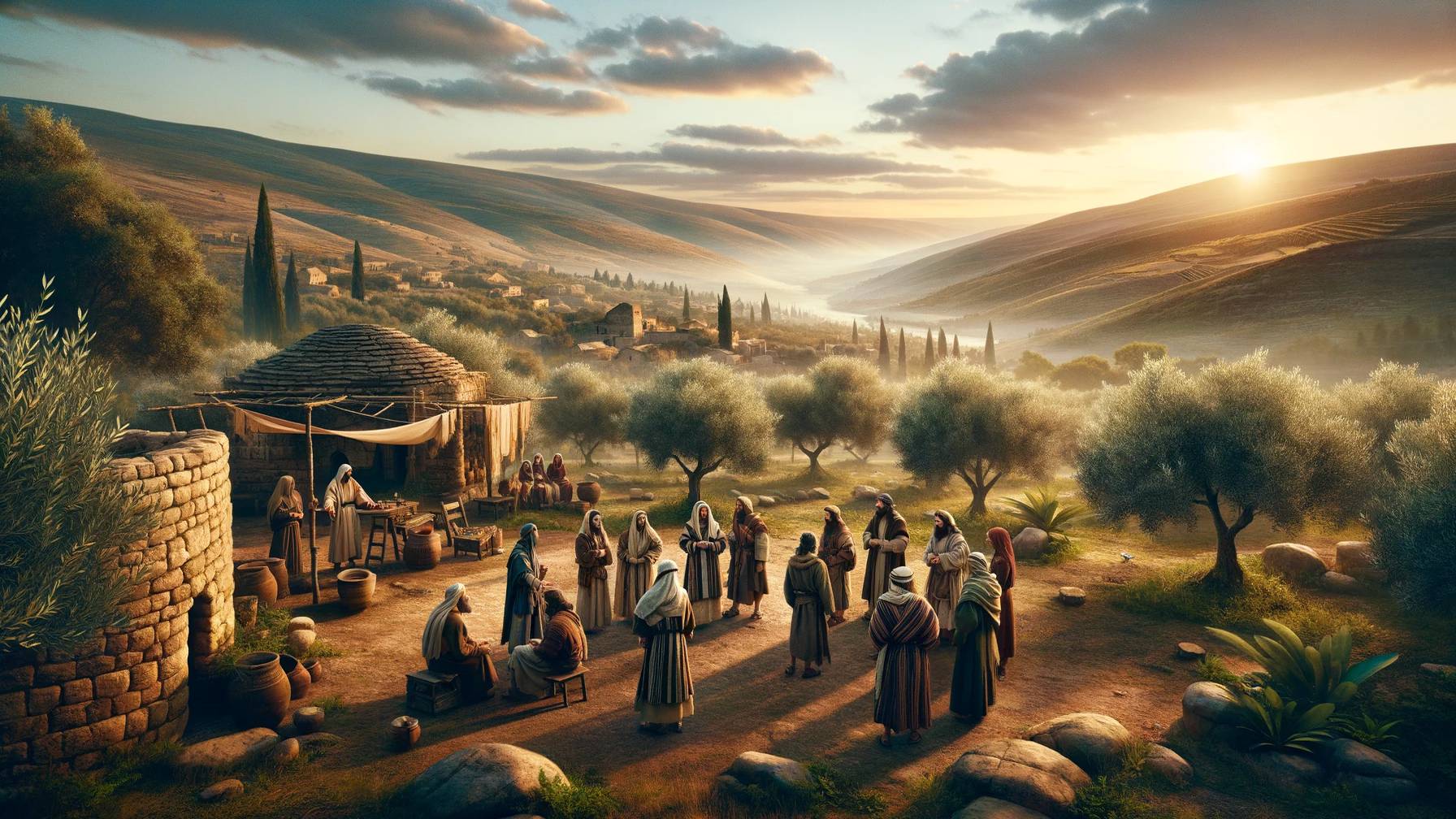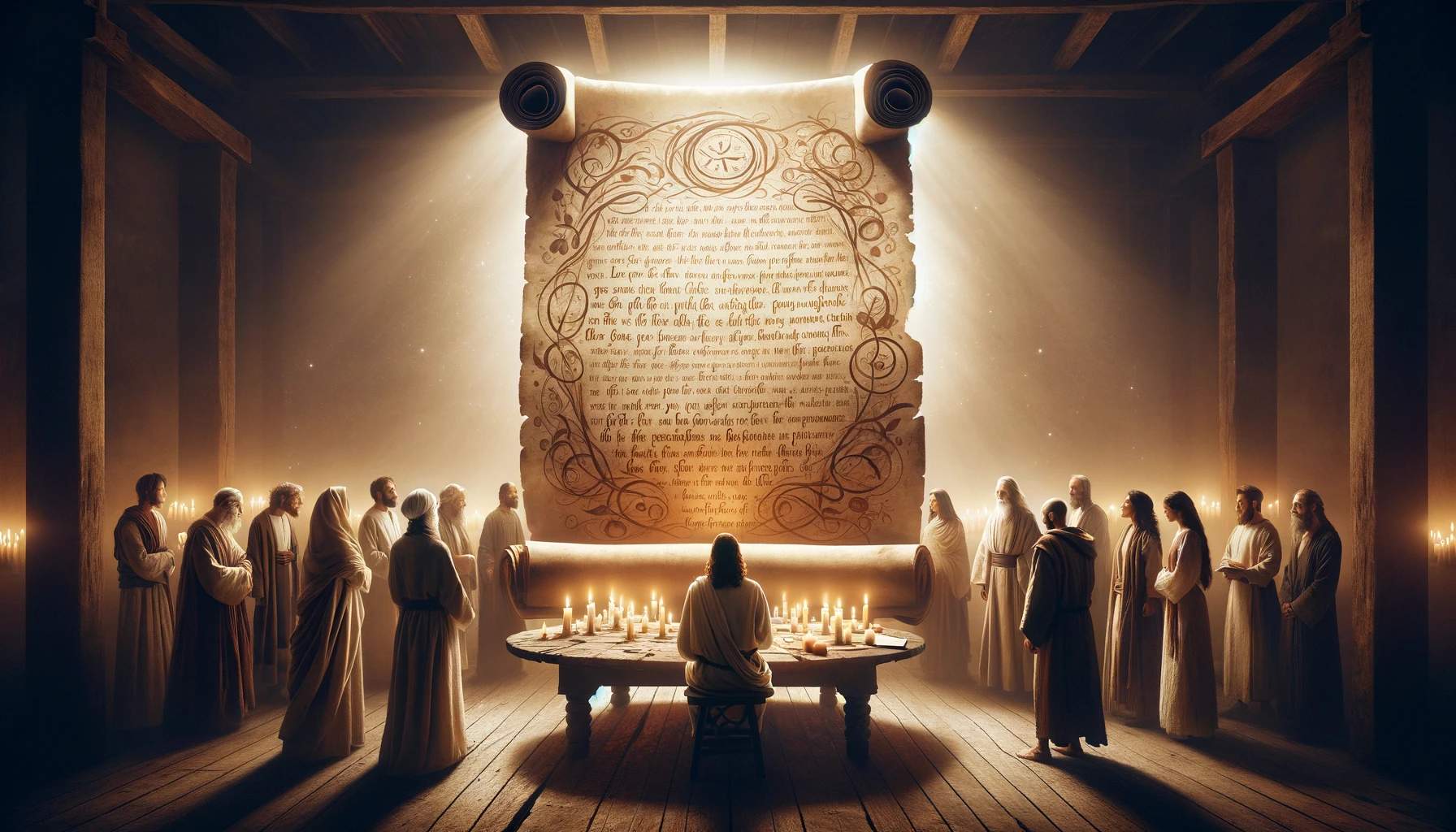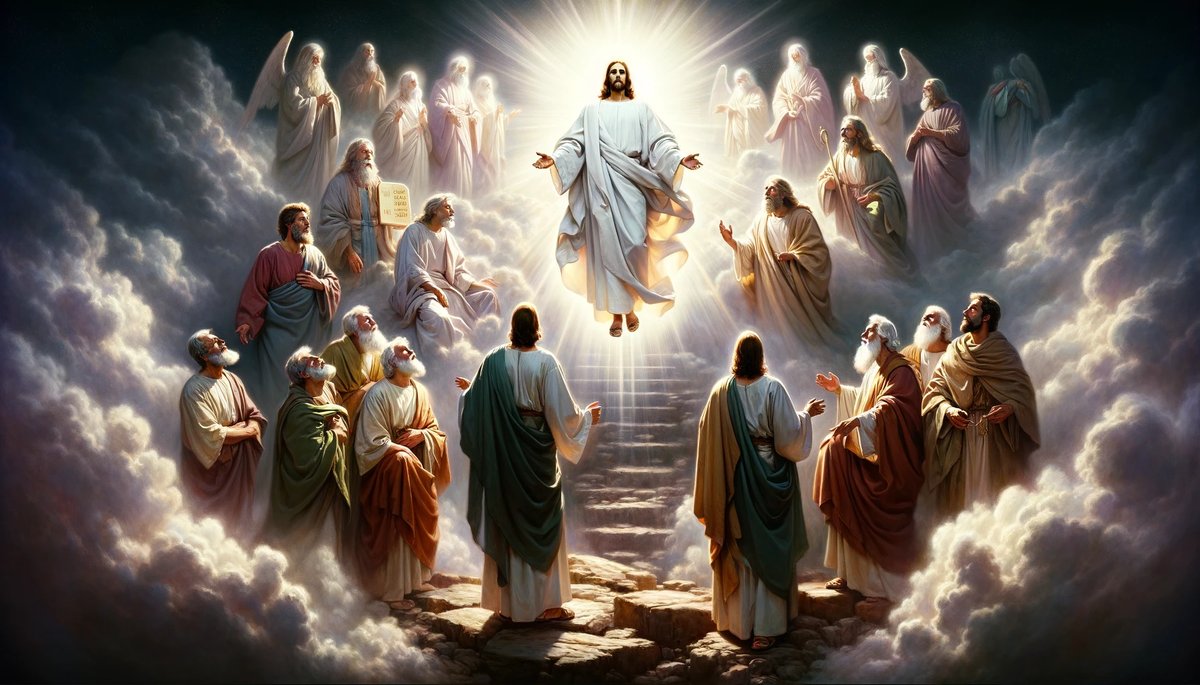Home>Christian Videos>Bible Stories>What Verse In The Bible Describes Jesus Christ
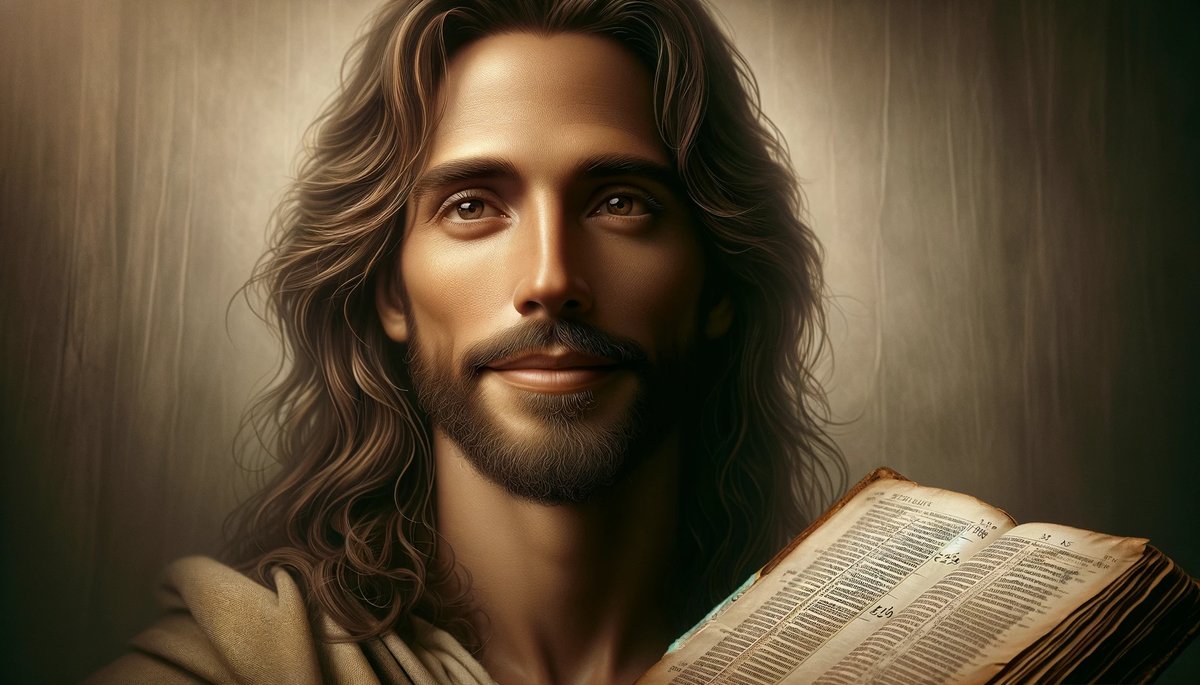

Bible Stories
What Verse In The Bible Describes Jesus Christ
Published: March 3, 2024
Ericka Andersen, an editor at Christian.net, expertly merges digital strategy with content creation, focusing on faith and societal issues. Her communication skills enhance the platform's engaging narratives, fostering meaningful dialogue on belief's impact on society.
Discover the verse in the Bible that beautifully describes Jesus Christ. Explore the significance of this powerful scripture and its impact on biblical teachings. Unlock the profound insights of this timeless story.
(Many of the links in this article redirect to a specific reviewed product. Your purchase of these products through affiliate links helps to generate commission for Christian.net, at no extra cost. Learn more)
Table of Contents
Introduction
What verse in the Bible describes Jesus Christ? This is a question that has intrigued and inspired countless individuals throughout history. The Bible, as the central religious text of Christianity, contains numerous verses that depict the nature, character, and significance of Jesus Christ. From the Old Testament prophecies to the New Testament accounts of his life, ministry, and teachings, the Bible offers a rich tapestry of verses that provide insight into the person of Jesus Christ. In this article, we will explore some of the key verses in the Bible that describe Jesus Christ, shedding light on his identity, mission, and impact on the world.
Read more: How Does The Bible Describe Jesus Christ?
The Prophecy of Jesus in the Old Testament
-
Isaiah 7:14 – "Therefore the Lord himself will give you a sign: The virgin will conceive and give birth to a son, and will call him Immanuel." This verse from the book of Isaiah is often cited as a prophecy foretelling the birth of Jesus Christ. The mention of a virgin giving birth to a son aligns with the Christian belief in the miraculous birth of Jesus to the Virgin Mary.
-
Micah 5:2 – "But you, Bethlehem Ephrathah, though you are small among the clans of Judah, out of you will come for me one who will be ruler over Israel, whose origins are from of old, from ancient times." This verse from the book of Micah prophesies the birthplace of the Messiah, foretelling that he will come from Bethlehem, a prophecy that was fulfilled in the birth of Jesus Christ.
-
Isaiah 9:6 – "For to us a child is born, to us a son is given, and the government will be on his shoulders. And he will be called Wonderful Counselor, Mighty God, Everlasting Father, Prince of Peace." This verse in Isaiah describes the nature and titles of the coming Messiah, portraying him as a figure of great significance and divine attributes, which align with the Christian understanding of Jesus Christ.
-
Isaiah 53:5 – "But he was pierced for our transgressions, he was crushed for our iniquities; the punishment that brought us peace was on him, and by his wounds we are healed." This powerful prophecy in Isaiah foretells the suffering and sacrificial role of the Messiah, a theme that finds fulfillment in the crucifixion and atoning work of Jesus Christ.
These Old Testament prophecies provide a compelling foundation for understanding Jesus Christ as the fulfillment of ancient promises and the embodiment of divine purpose. The intricate details and overarching themes of these prophecies resonate with the Christian belief in Jesus as the long-awaited Messiah.
The Gospel Accounts of Jesus' Life and Ministry
-
John 1:1 – "In the beginning was the Word, and the Word was with God, and the Word was God." This profound opening verse of the Gospel of John establishes the divine nature of Jesus Christ as the Word made flesh. It sets the stage for the narrative of Jesus' life and ministry, emphasizing his eternal existence and his identity as part of the Godhead.
-
Matthew 1:23 – "The virgin will conceive and give birth to a son, and they will call him Immanuel (which means 'God with us')." The Gospel of Matthew echoes the prophecy from Isaiah, affirming the miraculous nature of Jesus' birth and underscoring the significance of his presence as God with humanity.
-
Luke 4:18-19 – "The Spirit of the Lord is on me because he has anointed me to proclaim good news to the poor. He has sent me to proclaim freedom for the prisoners and recovery of sight for the blind, to set the oppressed free, to proclaim the year of the Lord's favor." In this passage, Jesus himself declares his mission and ministry, outlining his purpose to bring liberation, healing, and restoration to those in need, reflecting his compassion and divine calling.
-
Matthew 5:3-12 – The Beatitudes, found in the Gospel of Matthew, present a series of blessings pronounced by Jesus, revealing the values of the kingdom of God. These verses encapsulate the heart of Jesus' teachings, emphasizing humility, mercy, righteousness, and peacemaking as essential qualities in the lives of his followers.
-
John 14:6 – "Jesus answered, 'I am the way and the truth and the life. No one comes to the Father except through me.'" This pivotal statement by Jesus encapsulates his exclusive role as the mediator between humanity and God, emphasizing the centrality of his person and teachings in the Christian faith.
The Gospel accounts provide a comprehensive portrayal of Jesus' life, teachings, miracles, and interactions with various individuals, offering a multifaceted understanding of his character, mission, and impact on the world. These verses serve as foundational texts for Christian belief and devotion, shaping the understanding of Jesus Christ as the embodiment of God's love, truth, and salvation for humanity.
The Epistles and Letters Describing Jesus' Nature
-
Colossians 1:15-20 – In this passage, the apostle Paul presents a profound depiction of Jesus Christ as the image of the invisible God, the firstborn over all creation, and the sustainer of all things. The language used here emphasizes the preeminence and supremacy of Jesus, portraying him as the cosmic ruler and reconciler of all things through his redemptive work on the cross.
-
Philippians 2:5-11 – The apostle Paul's letter to the Philippians contains a powerful hymn that exalts the humility and exaltation of Jesus Christ. It describes how Jesus, though being in very nature God, emptied himself and took on the form of a servant, obedient to the point of death on a cross. This passage highlights Jesus' selfless love and ultimate exaltation, affirming his lordship and universal acclaim as the name above every name.
-
Hebrews 1:1-4 – The opening of the book of Hebrews presents a majestic portrayal of Jesus Christ as the radiance of God's glory and the exact representation of his being. It underscores Jesus' role as the heir of all things and the sustainer of the universe, affirming his divine nature and sovereign authority. This passage emphasizes the unparalleled nature of Jesus' identity and his role in revealing the fullness of God's character to humanity.
-
1 John 4:9-10 – The first epistle of John encapsulates the essence of God's love manifested in the sending of his Son, Jesus Christ, into the world. It portrays Jesus as the ultimate expression of God's love, as he laid down his life as an atoning sacrifice for the sins of humanity. This passage illuminates the sacrificial nature of Jesus' mission, highlighting his redemptive purpose and the transformative power of divine love through his life and death.
-
Revelation 1:12-18 – The vision of Jesus Christ in the book of Revelation presents a striking image of the glorified and exalted Lord. Described with imagery that conveys his divine authority and eternal presence, Jesus is depicted as the Alpha and the Omega, the first and the last, the living one who holds the keys of death and Hades. This portrayal underscores the majestic and transcendent nature of Jesus Christ, affirming his sovereignty over all creation and the course of history.
The epistles and letters of the New Testament provide profound insights into the nature, identity, and redemptive work of Jesus Christ. Through these passages, the apostles and writers offer a rich tapestry of theological reflection and exaltation of Jesus, portraying him as the divine Son of God, the Savior of humanity, and the ultimate revelation of God's love and purpose for the world.
The Revelation of Jesus Christ in the Book of Revelation
-
Revelation 1:12-18 – The book of Revelation opens with a powerful vision of Jesus Christ, portrayed in his exalted and divine glory. The imagery used to describe Jesus, with eyes like blazing fire and feet like bronze glowing in a furnace, conveys his majestic presence and authority. This portrayal emphasizes the transcendent nature of Jesus, affirming his eternal existence and sovereign rule over all creation.
-
Revelation 5:5-6 – In this passage, Jesus is depicted as the Lion of the tribe of Judah and the Lamb who was slain, symbolizing both his royal authority and sacrificial atonement. The combination of these images underscores the dual nature of Jesus as the triumphant ruler and the suffering servant, highlighting his redemptive work and his role as the central figure in God's plan for salvation.
-
Revelation 19:11-16 – The climactic depiction of Jesus in Revelation portrays him as the Faithful and True, riding on a white horse and leading the armies of heaven. With eyes like blazing fire and a sharp sword coming out of his mouth, he is described as the Word of God and the King of kings. This majestic portrayal emphasizes Jesus' ultimate victory over evil and his reign as the supreme authority in the cosmic battle between good and evil.
-
Revelation 22:12-13 – The closing words of the book of Revelation reaffirm Jesus' identity as the Alpha and the Omega, the First and the Last, the Beginning and the End. This declaration underscores the timeless and all-encompassing nature of Jesus, positioning him as the central figure in God's redemptive plan for humanity and the culmination of all history.
The book of Revelation offers a vivid and awe-inspiring portrayal of Jesus Christ, depicting him as the divine ruler, the sacrificial lamb, the victorious warrior, and the ultimate source of hope and redemption for humanity. These visionary descriptions of Jesus in the book of Revelation serve to exalt his majesty, affirm his central role in God's plan for the world, and inspire faith and devotion in the hearts of believers.
